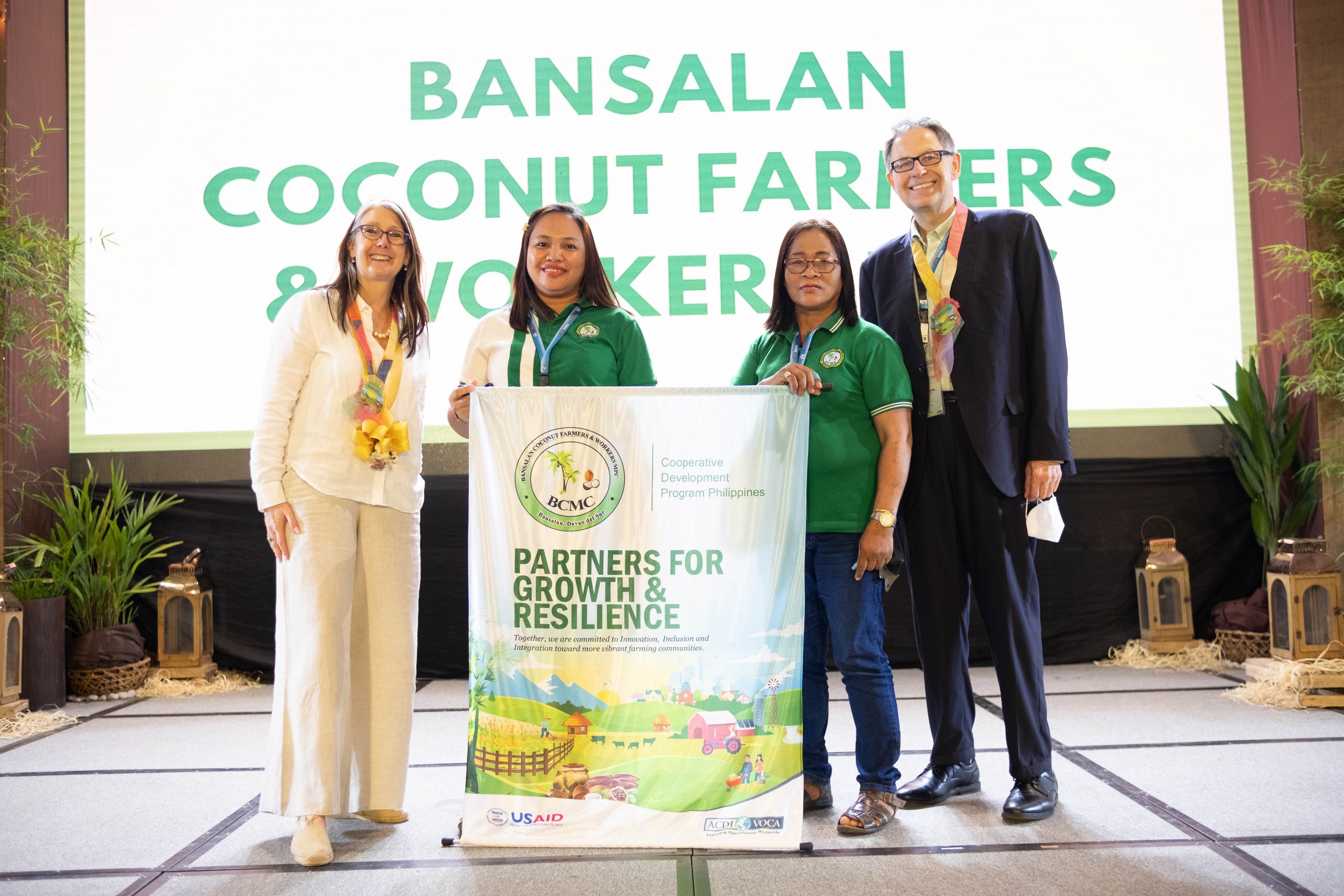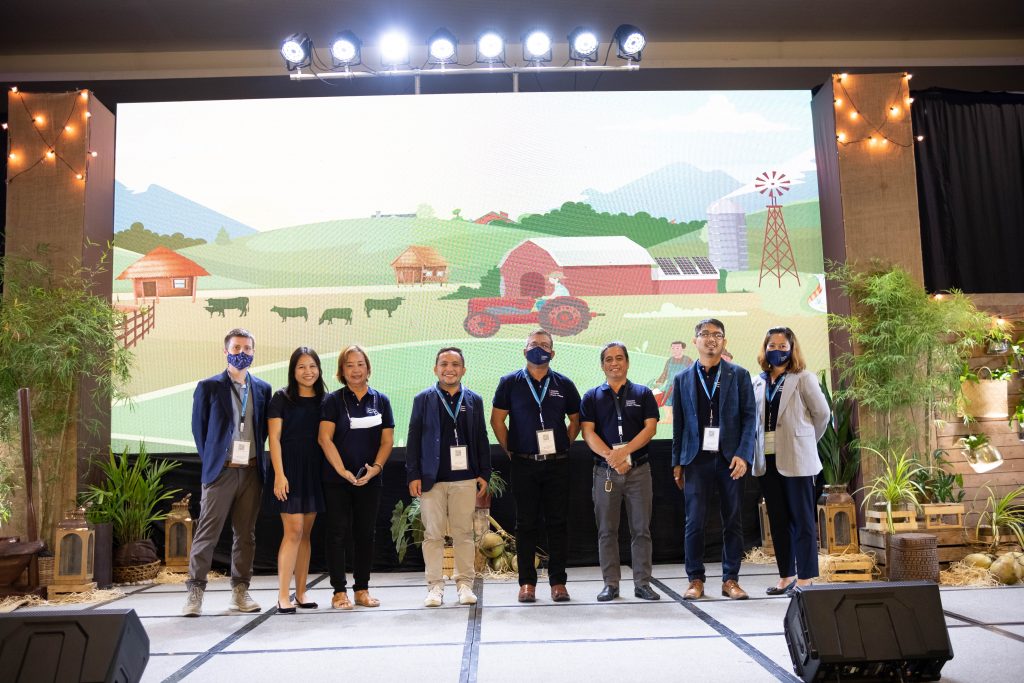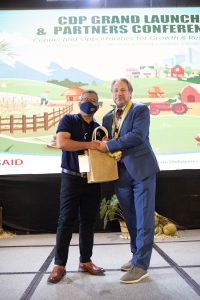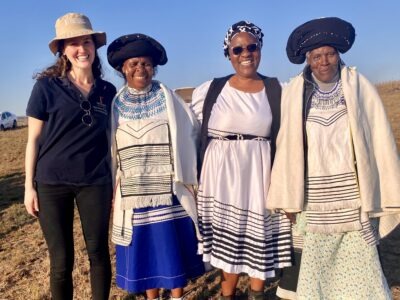
This post is authored by Felipe Cook, a Leland Fellow with the Congressional Hunger Center working with ACDI/VOCA.
On September 13, 2022, ACDI/VOCA launched the USAID-funded Cooperative Development Program (CDP) in the Philippines by signing partnership agreements with 41 local cooperatives. Over 190 participants from the Luzon and Mindanao regions attended the day-long affair, including co-op leaders and managers, government officials, cooperative federations and service groups, private sector representatives, and socio-civic and NGO partners. These partnering co-ops are engaged in various high-value agricultural enterprises, ranging from coffee, cacao, coconut, and rice to aquaculture and dairy production.
Guests shared the spotlight with USAID Deputy Office Director for Economic Development and Governance Eric Florimon-Reed, ACDI/VOCA President & CEO Sylvia Megret, CDP Global Manager Thelonious Trimmell, and CDP Country Director Alfred Allaga. Highlighting the importance of partnerships, officials from the Cooperative Development Authority, AgriCOOPH, and Mindanao Development Authority presented their distinct roles within the big picture of development approaches for strengthening agricultural cooperatives.
The event coincided with the 2022 Philippine Coffee Expo—organized by Philippine Coffee Advancement and Farm Enterprise (PhilCAFE), a five-year activity also implemented by ACDI/VOCA and funded by the US Department of Agriculture—in Davao City.
“A one-mind and one-heart community of partnerships is essential to create a culture of innovation, inclusion, and integration.”
—Sylvia J. Megret, ACDI/VOCA President & CEO
Resiliency in the Face of Typhons and Other Disasters
Stories of grit and collective perseverance filled the afternoon as guests shared their narratives. Luz Yringco, CEO of St. Francis Xavier Community Credit Cooperative (AFCCO) in Leyte, spoke about resilience amid a backdrop of climate change and environmental issues, recalling the wreckage of Typhoon Bopha and Haiyan in 2012 and 2013, respectively. Ravaged by the typhoons, AFCCO shared their story of surviving and thriving.

Nearly three years ago, the COVID-19 pandemic also devastated the Philippine economy. As one of the most disaster-prone countries in the world, it was already facing the risks of flooding, earthquakes, and typhoons, such as Typhoon Rai, the strongest to hit the country in 2021. But COVID-19 was different; it radically changed the business environment and put many farmers and their businesses in a precarious state. According to the Philippine Statistics Authority, the country’s annual growth rate dropped by almost 10 percent. In Mindanao, it was a nearly 6 percent decline. And the country’s 10 million agricultural workers are the most vulnerable to these disasters. The agricultural sector has had the highest poverty rate of any sector since 2006, with at least 2.4 million people living below the poverty line. Agri-business cooperatives are a popular business model in the Philippines, but they struggled to compete in the new post-pandemic landscape.
CDP Philippines: Powering Positive and Sustainable Change
Despite considerable progress in their recovery, Philippine cooperatives remain in need of technical assistance. CDP Philippines will implement a five-year, multimillion-dollar effort by USAID and ACDI/VOCA to provide this assistance, building on ACDI/VOCA’s extensive network from previous cooperative development programs and expertise in agriculture, resilience, finance, equity, and inclusion.
This support will foster broad-based economic growth, raise living standards, and help build dynamic agricultural value chains. CDP Philippines specializes in three areas: (1) upgrading cooperatives’ ability to plan their business by introducing good governance and management protocols, (2) upscaling cooperatives by supporting them in digitizing their product services, and (3) up-linking cooperatives into new stakeholder partnerships.
Multi-Stakeholder Conversations on Stronger Alliances
CDP Philippines is investing in solutions to the challenges cooperatives and their agri-businesses face. This event showed how the program looks to rise to the challenge and develop inclusive and integrated strategies that will enable the supported cooperatives to innovate. Together with the agricultural cooperatives, federations, and associated agribusinesses, CDP Philippines will promote inclusion, integration, and innovation to create a more vibrant and sustainable farming community.

Learn more about the Cooperative Development Program (CDP) in the Philippines.
Learn more about our work in the Philippines.







